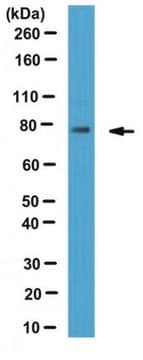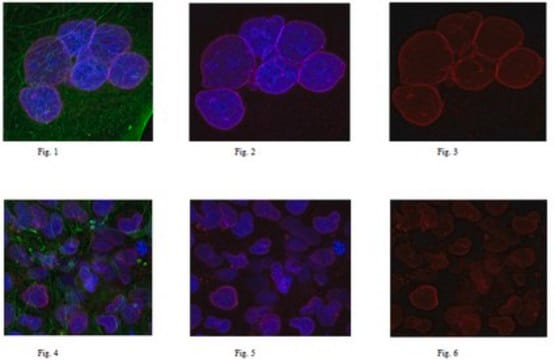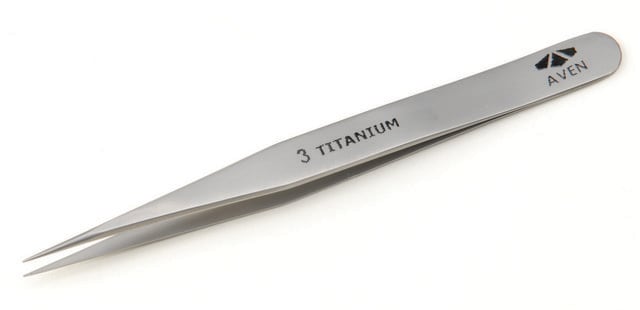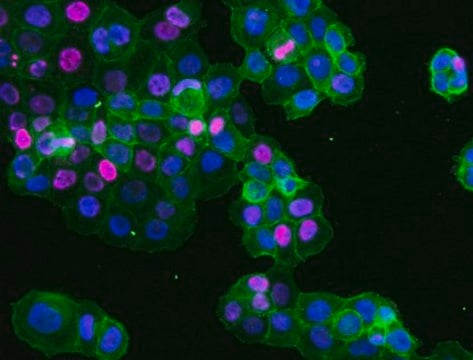ABT273
Anti-SUN1 Antibody
from rabbit, purified by affinity chromatography
Synonym(e):
SUN domain-containing protein 1, Protein unc-84 homolog A, Sad1/unc-84 protein-like 1
About This Item
Empfohlene Produkte
Biologische Quelle
rabbit
Qualitätsniveau
Antikörperform
affinity isolated antibody
Antikörper-Produkttyp
primary antibodies
Klon
polyclonal
Aufgereinigt durch
affinity chromatography
Speziesreaktivität
rat, human
Methode(n)
immunocytochemistry: suitable
western blot: suitable
NCBI-Hinterlegungsnummer
UniProt-Hinterlegungsnummer
Versandbedingung
wet ice
Posttranslationale Modifikation Target
unmodified
Angaben zum Gen
human ... SUN1(23353)
Allgemeine Beschreibung
Immunogen
Anwendung
Zellstruktur
Adhäsions-Proteine (CAMs – Zelladhäsionsmoleküle)
Western Blotting Analysis: A representative lot detected SUN1 recombinant protein (Haque, F., et al. (2010). Journal of Biol. Chem. 285(5): 3487-3498).
Immunocytochemistry Analysis: A representative lot detected SUN1 in human foreskin fibroblasts cells (Haque, F., et al. (2010). Journal of Biol. Chem. 285(5): 3487-3498).
Qualität
Western Blotting Analysis: A 1:1;000 dilution of this antibody detected SUN1 in 10 µg of A431 cell lysate.
Zielbeschreibung
Physikalische Form
Lagerung und Haltbarkeit
Sonstige Hinweise
Haftungsausschluss
Sie haben nicht das passende Produkt gefunden?
Probieren Sie unser Produkt-Auswahlhilfe. aus.
Lagerklassenschlüssel
10 - Combustible liquids
WGK
WGK 2
Flammpunkt (°F)
Not applicable
Flammpunkt (°C)
Not applicable
Analysenzertifikate (COA)
Suchen Sie nach Analysenzertifikate (COA), indem Sie die Lot-/Chargennummer des Produkts eingeben. Lot- und Chargennummern sind auf dem Produktetikett hinter den Wörtern ‘Lot’ oder ‘Batch’ (Lot oder Charge) zu finden.
Besitzen Sie dieses Produkt bereits?
In der Dokumentenbibliothek finden Sie die Dokumentation zu den Produkten, die Sie kürzlich erworben haben.
Unser Team von Wissenschaftlern verfügt über Erfahrung in allen Forschungsbereichen einschließlich Life Science, Materialwissenschaften, chemischer Synthese, Chromatographie, Analytik und vielen mehr..
Setzen Sie sich mit dem technischen Dienst in Verbindung.








